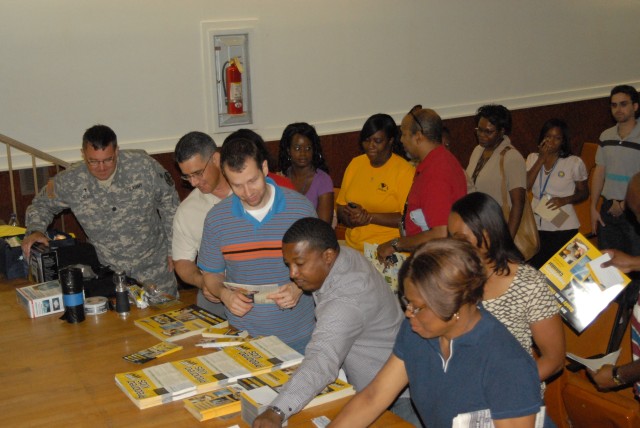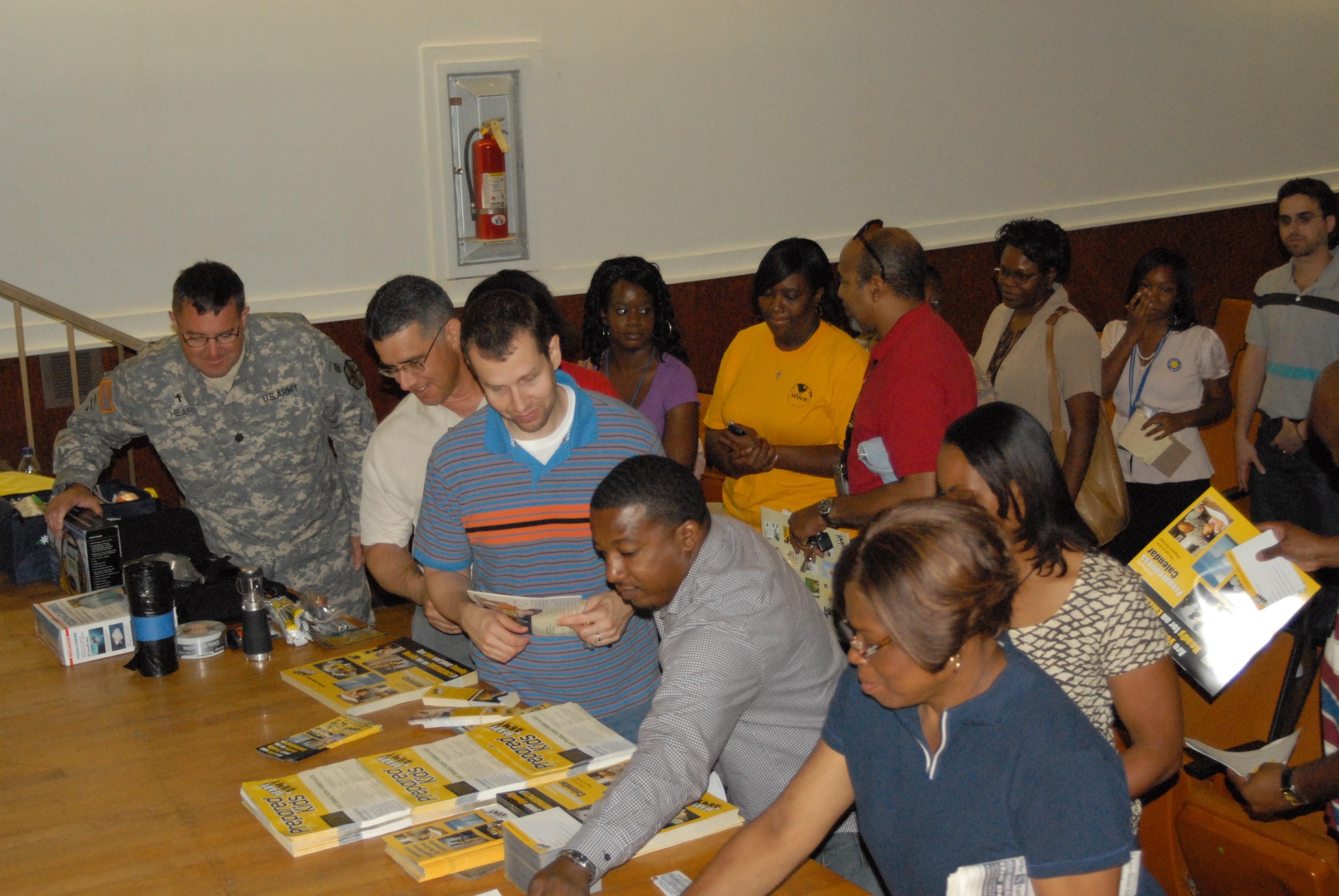HUNTER ARMY AIRFIELD, Ga. -Note to Dorothy and Toto (apologies to The Wizard of Oz): You're not in Kansas anymore, but you still need to make a plan and get ready for the possibility of hurricanes, high winds, flooding, and yes, tornadoes, that may come to our area at this time of the year.
"Make a plan, get a kit, and stay informed" was the message to Hunter Army Airfield Soldiers, Family Members, and DoD Civilians at their annual Hurricane Briefing held at the Hunter Post Theater, June 9.
Between two Hunter employees, LeAndre Anderson, emergency operation specialist and Herbert Quiller, CBRNE operations security and Army Ready program manager, individuals who attended should have been able to walk away with a wealth of information and personal decisions if dangerous weather conditions come this way.
Carry cash money, instead of plastic (credit cards) was stressed from Quiller. He also stated that any kit that you get should sustain you in the event of an evacuation. "It may take you 16-20 hours to get to Macon, and you want that kit to keep you going while you are en route to a safe destination."
There were several in the audience who were adamant that they would weather the storm and hunker down. "If that is what you plan to do, I suggest you start your sandbagging early, and invest in a weather radio," said Quiller.
Even though the skies are clear, and the weather is hot, Stewart-Hunter is already in a hurricane category. "We are currently in HURCON 5, which is normal operations at an advanced state of readiness," said Anderson. "We will remain as such until the first storm or until Nov. 30, which will end the hurricane season."
Anderson informed those present that Fort Stewart Regulation 500-3-2 governs the evacuation process for Stewart-Hunter. "If you think that going to Stewart is your evacuation area, that is the wrong answer," said Anderson. "You want to go west instead."
Anderson also took into consideration concerns of Family Members who were present. "The senior commander will make the decision to evacuate Hunter. Your Soldier is still in the military. You may be able to leave the area, but the Soldier may have to stay. He may have to catch up with you later."
Though the season tends to peak in July and August, this area could just as easily have a system come through during the month of June.
The 2010 prediction for this type of weather is that there will be 15 named storms, eight hurricanes, and four intense storms. The average is 10, six, and three, respectively.
"Before the season gets too far gone, determine your route if you plan to leave," said Anderson. "Once the weather has abated and you are ready to return, do not just come back automatically. You need to be sure the 'all clear' is given for the area. There may be trees, power lines, or other issues that make returning to your particular area inaccessible."
To find out if it is okay to return, persons should call 866-586-3116.
And of course it is so important to remember your pets in your evacuation plan. If you do not take them with you, see if you can find someone who can take care of them in your absence as many shelters will have limited availability for them. If all else fails, do not leave them tied up on leashes in the yard. Allow them the freedom to be able to escape and seek shelter.
Now is the time to get your disaster supplies ready, added Anderson. Water, non-perishable food, medications, first aid kits, extra keys, and items for any handicapped members should be considered. "I would also advise packing some rugged clothing such as boots," he said. "When you return home, you would not want to bring injury to your feet that sandals and flip flops can cause if you have to walk or wade in debris and water."


Social Sharing